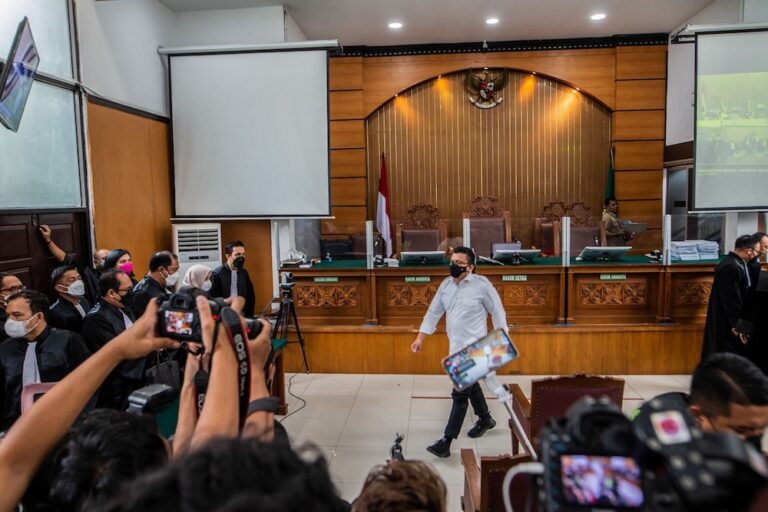(SEAPA/IFEX) – The Southeast Asian Press Alliance (SEAPA) welcomes the Indonesian Constitutional Court’s landmark ruling on 6 December 2006, which declared as unconstitutional the “lèse majesté” articles that criminalise insulting the president and vice-president. Under the now annulled articles 134, 136, and 137 of the Criminal Code, anyone who disseminated, demonstrated openly or put up […]
(SEAPA/IFEX) – The Southeast Asian Press Alliance (SEAPA) welcomes the Indonesian Constitutional Court’s landmark ruling on 6 December 2006, which declared as unconstitutional the “lèse majesté” articles that criminalise insulting the president and vice-president.
Under the now annulled articles 134, 136, and 137 of the Criminal Code, anyone who disseminated, demonstrated openly or put up a writing or portrait containing an insult against the president or vice-president was liable to be imprisoned for up to six years. A legacy of the Dutch colonialists, these articles had been abused by the Suharto regime, silencing political opponents, critics, students and human rights activists.
SEAPA applauds the Court’s wisdom in recognising that such laws “hamper the freedom for conveying thoughts, orally or written, and the right to express (oneself),” as announced by the Constitutional Court Chair Jimly Asshiddiqie.
The verdict affirms Article 28 of Indonesia’s 1945 Constitution, which spells out the people’s legal right to freedom of expression: “Freedom of association and assembly, of verbal and written expression and the like, shall be prescribed by law.”
With this milestone ruling, Indonesia is one step closer to streamlining its laws with international standards of freedom of expression, as laid out by Article 19 in both the Universal Declaration of Human Rights and the International Covenant on Civil and Political Rights, to which the government acceded on 23 February 2006.
The country’s legislators should now take the next step forward by heeding the call of SEAPA’s founding member in Indonesia, the Alliance of Independent Journalists, to reject curbs on freedoms of expression and the press in the draft Criminal Code under review since June.
According to AJI and the Indonesian Press Council, at least 49 articles in the 727-point draft code could land journalists in prison, on charges such as libel, insulting public authorities and state institutions, disseminating exaggerated or incomplete news that could lead to social disorder, leaking state secrets and spreading communism or Marxism-Leninism with the intent of changing or replacing the state ideology of Pancasila.
Such provisions in the draft Criminal Code also encroach on the purview of Indonesia’s internationally hailed Press Law, established in 1999.
SEAPA urges Indonesia’s legislators to continue the tremendous progress the country has made as a fledgling but vibrant democracy in the short time since the fall of Suharto in 1998. The latest Court ruling has demonstrated Indonesia’s understanding and acceptance of the principles of democracy. Indonesia’s legislators must now create a legal legacy that will impose on the government the obligation to accept a free and independent media in which a diversity of opinions will thrive in the interest of the people’s right to know.


